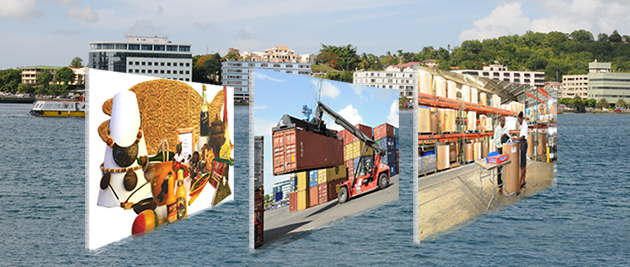
Ministry of Commerce, Manufacturing, Business Development, Cooperatives and Consumer Affairs

Statements by Hon Bradly Felix to the 11th Ministerial Conference of the WTO
Published: 2017-12-12
Author: Honorable Bradly Felix
Author: Honorable Bradly Felix
Madam Chair,
Member States of the Caribbean Community (CARICOM) are very pleased to be here in Buenos Aires at the first World Trade Ministerial Conference to be held in South America, a continent that includes two Members from our group, Guyana and Suriname. Our delegations thank you, the Government and the people of the Argentine Republic for your very warm hospitality and the excellent arrangements.
CARICOM considers this Ministerial Conference to be of great importance, in light of the uncertainty and disaffection being expressed in many parts of the global community. This has led to the questioning in some quarters of the principles underpinning global co-operation and multilateral action. This Conference provides us with a very timely opportunity to re-affirm our strong commitment to multilateralism and collective action, and in particular, to a rules based, inclusive, multilateral trading system, enshrined in the Agreements establishing the World Trade Organisation. These Agreements explicitly recognize the need to embody provisions which confer differential and more favourable treatment for developing economies. The Doha Development Round, the launch of which we supported, further promised that issues of particular concern to developing countries, including small and vulnerable economies and least developed countries, would be central to our work and decisions.
While we recognise that the Doha Round has made limited progress, requiring recalibration of the negotiating approach in the WTO, the principles regarding the centrality of the development dimension in the fashioning of rules remain essential. This acknowledgement led to the successful conclusion of the Trade Facilitation Agreement which entered into force this year and has been now ratified by ten CARICOM Members.
Our delegations will work with others at this Conference to ensure that these fundamental principles continue to guide our future work in the WTO.
This year, many small and vulnerable economies in the Caribbean, including some in CARICOM, notably Antigua and Barbuda, Dominica, The Bahamas, Haiti, British Virgin Islands (BVI), Anguilla, Turks and Caicos suffered massive devastation and absolute destruction of critical infrastructure from two unprecedented hurricanes, fueled by global warming and climate change. While The Bahamas, the BVI, Anguilla and Turks and Caicos are not WTO Members, they are an integral part of CARICOM. The entire island of Barbuda was declared unfit for habitation. The post hurricane impact assessment has measured Dominica's loss to be 200% of GDP.
Colleague Ministers, many of these countries are faced with the herculean task of reconstructing their entire economies. Recovery and redevelopment, including that of their productive capacity, will take several years.
For many of these countries, the timeframes associated with the UN Sustainable Development Goals no longer apply.
It is for these reasons that the time has now come for focused global attention to be paid to the impact of climate change on trade and the vulnerability of Small States, like those in CARICOM, whose attempts to insert themselves effectively into the global trading system frequently suffers from the devastating effects of natural disasters.
Accordingly, CARICOM calls on this Conference to support the Declarations of the Small Economies of the OECS and that of the Ministers of the Small and Vulnerable Economies Group, for the full flexibility of the multilateral trading system be deployed regarding the reconstruction measures that may be undertaken by the affected Members so that these be considered compatible with the WTO Agreements.
Madam Chair,
CARICOM welcomes the draft decision on the Work Programme on Small Economies and looks forward to its adoption by this Conference.
Our Members have participated very actively, through the African, Caribbean and Pacific (ACP) Group, in the negotiations on Fisheries subsidies disciplines, given the importance of this sector to our economies. We acknowledge with appreciation the hard work and engagement of Members in this area. We are committed to finding a successful outcome which fully encompasses special and differential treatment for developing countries in line with the ACP Group's proposals. In agriculture, we continue to place importance on the development of a Special Safeguard Mechanism that can be used effectively by our countries. We call for a meaningful outcome from the deliberations on Development including the G 90 proposals on Special and Differential Treatment.
Electronic Commerce and Micro, Small and Medium Sized Enterprises are important areas that we recognize are critical to ensuring we keep abreast of new developments that are relevant to our citizens. We therefore look forward to future discussions that will deliver outcomes that would permit Members to address all the relevant issues, including those related to infrastructure and capacity building.
In closing, our delegations commit to working with other Members to ensure positive outcomes from this Conference, in keeping with the momentum from Bali and Nairobi and consistent with the development imperatives of the small, vulnerable economies in the Caribbean Community.
Thank you





 [more]
[more]